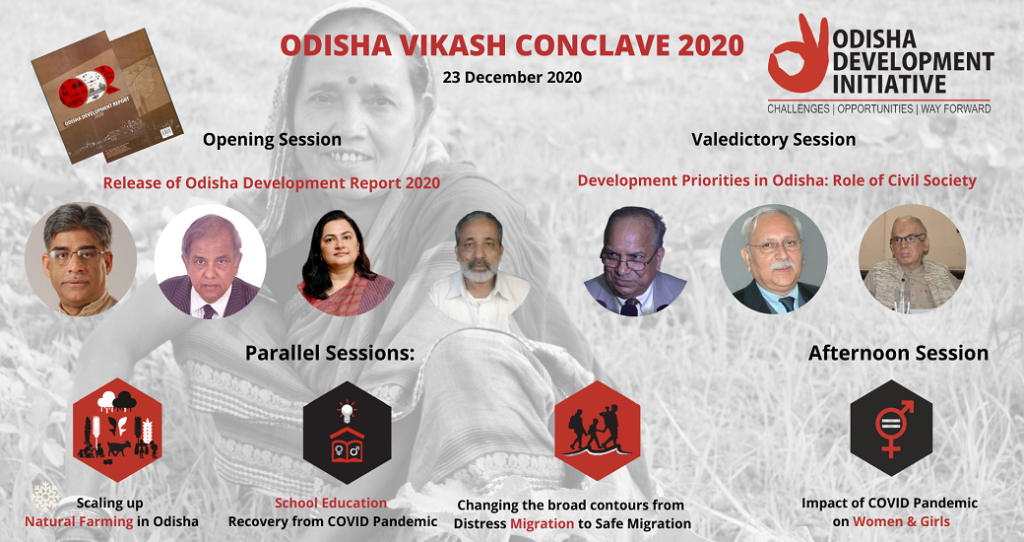
With the aim of building synergy among different actors and stakeholders and to develop a roadmap for the State in harmony with the Sustainable Development Goals, CYSD has been facilitating the Odisha Development Initiative (ODI) since 2013. The Third Edition of Odisha Vikash Conclave (OVC) 2020, a unique of its kind, was organized virtually on 23rd December under the aegis of ODI with the joint efforts of several like-minded development organizations involving about 370 delegates from various sectors including the civil society, government, community-based organizations, people’s representatives, Panchayati Raj Institutions and the private sector.
The key objectives of this event were to identify the grassroots level development issues in Odisha and generate shared understanding among the multiple stakeholders; provide the government (both State and Centre) with grassroots perspective and feedback from the ground;
Opening of the Conclave
The Inaugural Session of the Conclave was graced by the eminent guest panelists, like Prof. (Dr.) Amitabh Kundu , Distinguished Fellow, Research and Information System for Developing Countries; Padmashree (Prof.) Radhamohan, Environmentalist; Smt. Ranjana Chopra, Principal Secretary, Department of ST & SC Development. Government of Odisha; and Shri Jagadananda, Convener, Odisha Development Initiative & Co-founder, CYSD.
Shri Jagadananda, in his welcome and inaugural address, said, during 2020 an attempt has been made to take the stock of the issues dealt with and what could not happen due to the Covid-19 pandemic. The pandemic has opened up new windows, problems and possibilities. In this context, what could be the development strategy in post-Covid-19 situation? We are just laying the foundation of OVC on 23rd Dec, since the agenda can’t be set in a day-long conversation it has to be a yearlong affair. There has to be willingness among all the players to come together, listen to each other, trust each other and come together to deal with the problems of Odisha. Further, he urged upon all the collaborators and the participants to actively participate in the deliberation and discuss the key development challenges Odisha is facing and articulate possible ways out to overcome those challenges.
On this auspicious occasion, the Odisha Development Report 2020 published by Odisha Development Initiative (ODI) was released, followed by a day-long dialogical process revolved around four key themes and delved deep into the problems, issues and possible responses and remedies, and came up with concrete policy asks.
Release of Odisha Development Report 2020
 The Odisha Development Report, published by Odisha Development Initiative, contains 40 insightful articles written by experts from diverse sectors. The report, in a studied and objective attempt, has assessed the present situation and identified the key areas of concern and constraints in achieving inclusive growth. The report also clearly states that partnership, collaboration and joint initiatives of government, civil society organizations, academic and corporates can take the development agenda to a new height and Odisha can be at the forefront of socio-economic growth of the country in the coming decades.
The Odisha Development Report, published by Odisha Development Initiative, contains 40 insightful articles written by experts from diverse sectors. The report, in a studied and objective attempt, has assessed the present situation and identified the key areas of concern and constraints in achieving inclusive growth. The report also clearly states that partnership, collaboration and joint initiatives of government, civil society organizations, academic and corporates can take the development agenda to a new height and Odisha can be at the forefront of socio-economic growth of the country in the coming decades.
Though the state’s position in health parameters such as malnutrition, anemia is better than the national average, the situation in tribal districts are alarming says the report. Over a dozens of tribal dominated districts are above the state average of anemic mothers and underweight children, the report highlighted further.
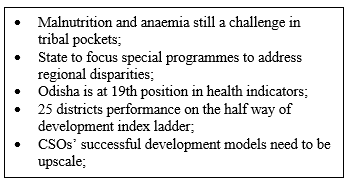 The ranking of overall index highlights that districts in the coastal and the industrial belt of north-west regions of Odisha are having better social development scenario as compared to other parts of the state. In the case of basic amenities, five districts namely Khorda, Cuttack, Jagatsignhpur, Ganjam and Puri have been maintaining the top ranking, while southern districts namely Baudh, Nabarangpur, Kandhamal, Mayurbhanj, Subarnapur and Malkanagiri were found to be the worst performing.
The ranking of overall index highlights that districts in the coastal and the industrial belt of north-west regions of Odisha are having better social development scenario as compared to other parts of the state. In the case of basic amenities, five districts namely Khorda, Cuttack, Jagatsignhpur, Ganjam and Puri have been maintaining the top ranking, while southern districts namely Baudh, Nabarangpur, Kandhamal, Mayurbhanj, Subarnapur and Malkanagiri were found to be the worst performing.
Eight districts in Odisha have more than 50 percent tribal population. The report highlights that the districts with high share of ST population record significantly low levels of development in health, basic amenities, education, economic, and the overall social wellbeing.
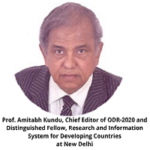 “Despite the well-orchestrated interventions by Finance Commission, Planning Commission and other institutions, Odisha remained a low recipient of federal transfers and corporate investments. Besides, regional disparity in Odisha is a major challenge and needs special attention with specially designed development programmes and schemes. Moreover, social inequalities based on caste, sex, region, lopsided development, rapid urbanization, high distressed migration, and less income opportunities are noted to be major challenges in Odisha.”
“Despite the well-orchestrated interventions by Finance Commission, Planning Commission and other institutions, Odisha remained a low recipient of federal transfers and corporate investments. Besides, regional disparity in Odisha is a major challenge and needs special attention with specially designed development programmes and schemes. Moreover, social inequalities based on caste, sex, region, lopsided development, rapid urbanization, high distressed migration, and less income opportunities are noted to be major challenges in Odisha.”
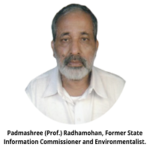
“Odisha Development Report 2020 clearly articulates the development priorities for Odisha; what the government and the civil society can do; and good civil servants who are open to new ideas, free to accept and translate them to action.”
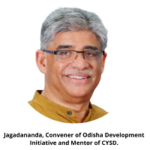 “One-fourth of the state population consists of indigenous people and over 90 percent of farmers are small and marginal landholders mainly depend on agriculture and allied sectors as their primary sources of income. CSOs have proved the partnership with government agencies on effective implementation of OTELP, cluster farming, agriculture production cluster programmes, etc; and many CSOs have demonstrated successful development models that need to be upscale in undeveloped rural/tribal pockets of the State.”
“One-fourth of the state population consists of indigenous people and over 90 percent of farmers are small and marginal landholders mainly depend on agriculture and allied sectors as their primary sources of income. CSOs have proved the partnership with government agencies on effective implementation of OTELP, cluster farming, agriculture production cluster programmes, etc; and many CSOs have demonstrated successful development models that need to be upscale in undeveloped rural/tribal pockets of the State.”
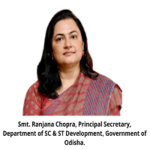
“The State Government is emphasizing on the agriculture productivity and improvement in the quality of life and livelihoods of tribal people through various income enhancement programmers and alternative livelihood opportunities meant for them. Also, the CSOs have demonstrated partnership with government agencies on effective implementation of the programmes & schemes and many of them have developed successful models that need to be up-scaled in underdeveloped pockets of the State.”
Key Thematic Sessions:

The conclave discussed the revival of rural economy through promotion of natural farming, finding avenues for safe migration and build data deficits for migration governance, meeting shortfalls in learning of children arising out of the pandemic, governance priorities for multi-faceted concerns of women and girl children, and the complementary role of civil society in all these areas.
Suggestions by Key Speakers
“Odisha has rich and valuable experiences in natural farming, and civil society organizations may play a vital role in scaling Natural Farming. We, therefore, look for Odisha partners to play a major role in the national level transformation becoming the members of NCNF.”
Shri Minhaj Ameen, Anchor, National Coalition for Natural Farming.
“Online education can’t be a substitute of face to face education at the classroom. Process of teaching & learning through direct interaction creates a kind of positive attitude among the students towards education. The teachers can teach the students in small groups at the village community centre on each alternate day and track the leaning of students through phone calls in the morning and evening every day and for better monitoring, the parents of the students may be involved in this process.”
Shri Gangadhar Sahoo, Director, TE&SCERT, Govt of Odisha.
Migration is not a uniform process it has different forms. There are vulnerable groups as well. Therefore, they need protection from the state either through legislation or universal access to social protection prioritizing the universal social protection framework.
Prof. R. B. Bhagat, Head – Dept. of Migration & Urban Studies, IIPS, Mumbai
Development Priorities in Odisha: Role of Civil Society
Initiating the deliberation of the evening session, a brief about the day-long programme along with release of Odisha Development Report, 2020 and the outcomes of the discussions on various thematic sessions were shared by Ms. Sneha Mishra, Secretary, AAINA. The esteemed panelists of the session like Justice Ananga Kumar Patnaik, Former Judge of Supreme Court; Dr. Rajesh Tandon, UNESCO Co-chair & Community Based Research and Social Responsibility in Higher Education, Prof. (Dr.) Amitabh Kundu, Distinguished Fellow, Research & Information System for Developing Countries; Dr. Bhagban Prakash, Former Senior Advisor, Election Commission of India, Shri Jagadananda, Convener of Odisha Development Initiative and Co-founder, CYSD, and Shri P K Sahoo, Co-founder of CYSD presented their valuable concrete suggestions on development priorities of Odisha focusing on role of civil society.
“It is required to invest in building leadership among the tribals, youth and the women; engage with multi-national companies; have dialogue with them on how they can contribute to the development of the state. Also, Growth rate is impressive in Odisha, but the share of agriculture production to GSDP has gone down. Further, the state is lagging behind in the social sectors including health and education which is a matter of concern. The population growth rate is not so high in Odisha, but the death rate is high. There is need for increased relative pricing of rice.”
Dr. Rajesh Tandon
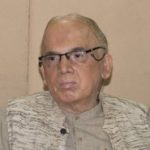 “Odisha seems to be in the development paradox as there are huge sources of water but irrigation coverage is low; soil is rich but productivity is less; there is political stability but development is not encouraging and inclusive; and being an agrarian state, its agriculture share to GSDP is not up to mark. Further, around 30000 civil society organizations are operating in Odisha, they need strong collaboration among each other to sort out varied issues of the State together.”
“Odisha seems to be in the development paradox as there are huge sources of water but irrigation coverage is low; soil is rich but productivity is less; there is political stability but development is not encouraging and inclusive; and being an agrarian state, its agriculture share to GSDP is not up to mark. Further, around 30000 civil society organizations are operating in Odisha, they need strong collaboration among each other to sort out varied issues of the State together.”
Dr. Bhagban Prakash
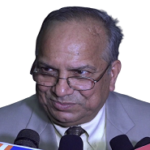 For the development of Odisha, drinking water, health & nutrition and education should be the priority areas. An increase in income of people is the need of the hour, so employability skills and entrepreneurial abilities require to be developed among the youth. Moreover, peace, harmony and fraternity should have to develop among the civil society organizations so that they can unitedly influence the legislature and the judiciary.
For the development of Odisha, drinking water, health & nutrition and education should be the priority areas. An increase in income of people is the need of the hour, so employability skills and entrepreneurial abilities require to be developed among the youth. Moreover, peace, harmony and fraternity should have to develop among the civil society organizations so that they can unitedly influence the legislature and the judiciary.
Justice Ananga Kumar Pattnaik
“The development priorities include both the hardware and the software components. While the government mechanism is good at dealing with the hardware component; the civil society is good at managing the software component including social mobilization and facilitating community actions. If both the actors join hands they can make the impossible possible. Therefore, collaboration among all the development partners is the need of the hour.”
Shri Jagadananda
 There is need for collaboration and synergy building among the development actors through regular dialogue and discourse with utmost trust and solidarity. Equity and inclusiveness are the keys to development. Moreover, there is no substitute for volunteerism and voluntary action in development.
There is need for collaboration and synergy building among the development actors through regular dialogue and discourse with utmost trust and solidarity. Equity and inclusiveness are the keys to development. Moreover, there is no substitute for volunteerism and voluntary action in development.
Sri Prafulla Kumar Sahoo

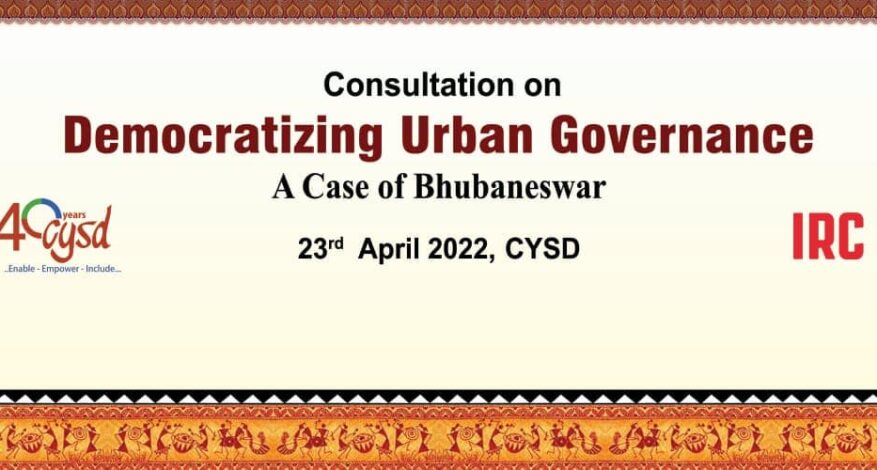
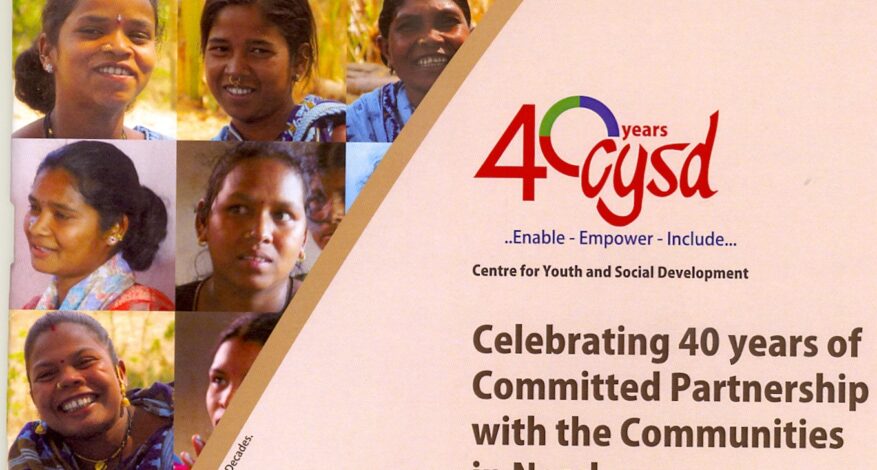
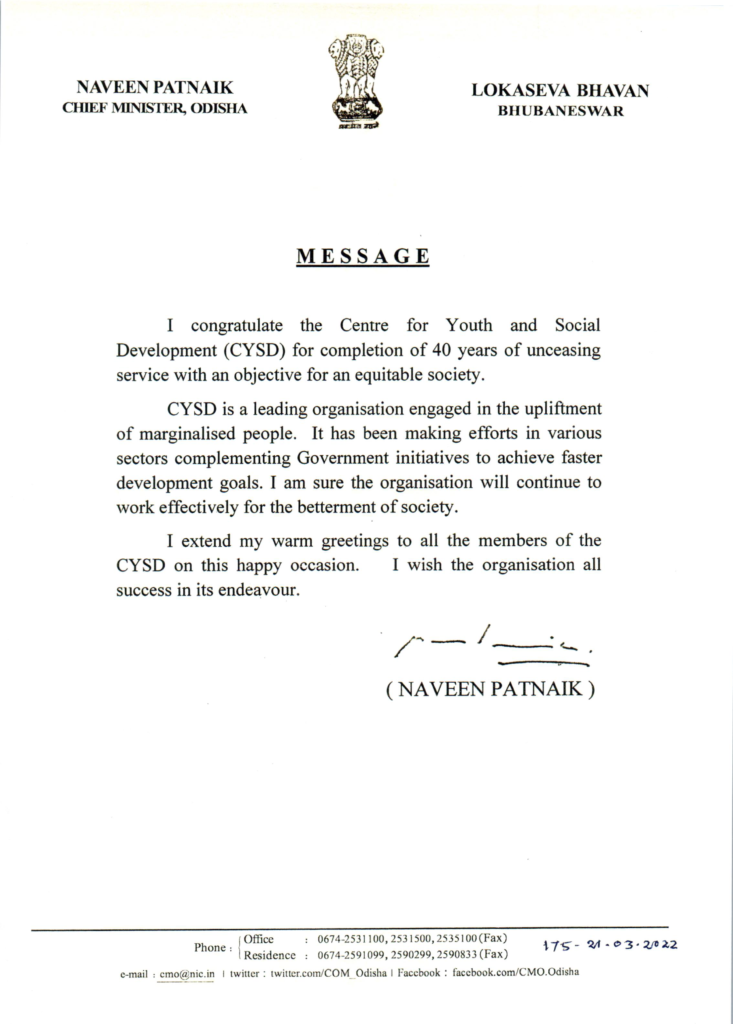
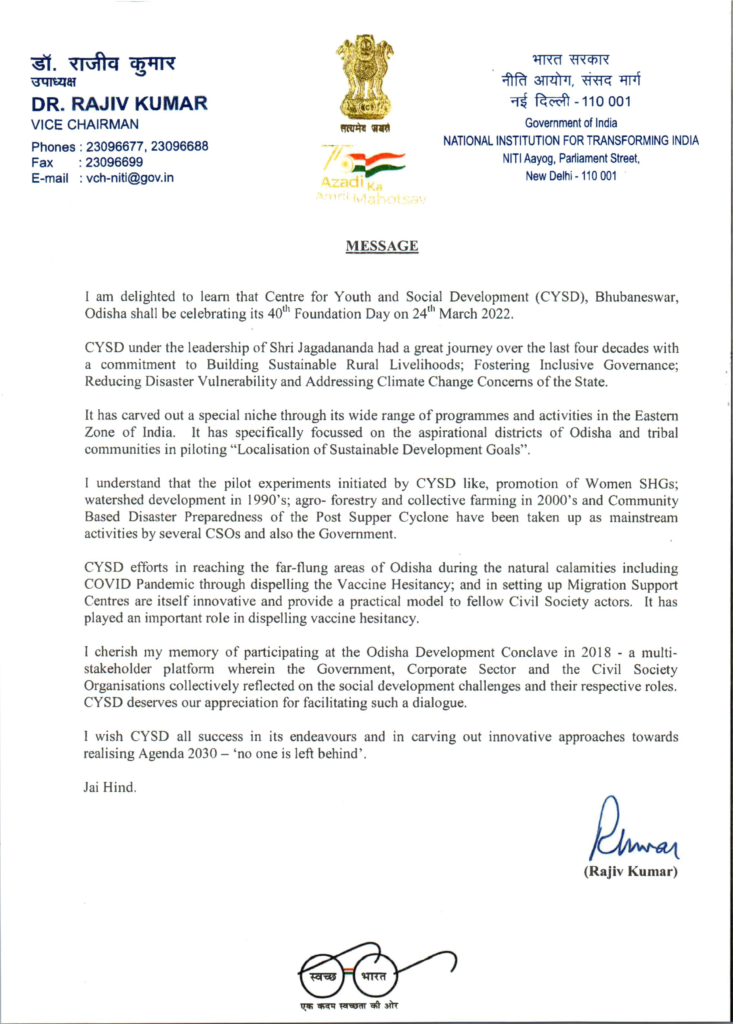
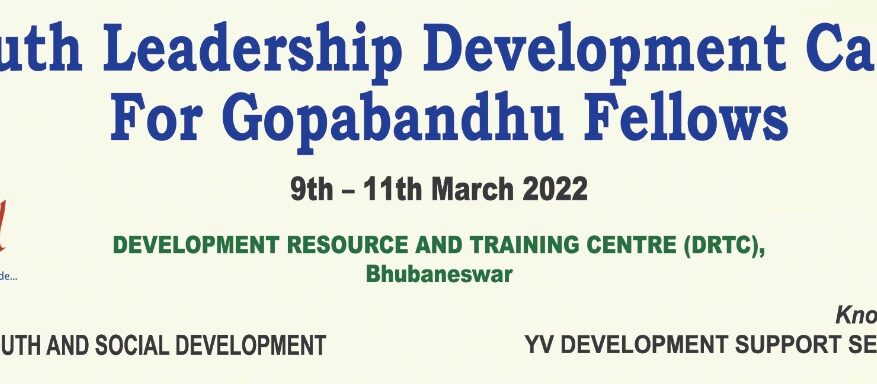




 “Despite the well-orchestrated interventions by Finance Commission, Planning Commission and other institutions, Odisha remained a low recipient of federal transfers and corporate investments. Besides, regional disparity in Odisha is a major challenge and needs special attention with specially designed development programmes and schemes. Moreover, social inequalities based on caste, sex, region, lopsided development, rapid urbanization, high distressed migration, and less income opportunities are noted to be major challenges in Odisha.”
“Despite the well-orchestrated interventions by Finance Commission, Planning Commission and other institutions, Odisha remained a low recipient of federal transfers and corporate investments. Besides, regional disparity in Odisha is a major challenge and needs special attention with specially designed development programmes and schemes. Moreover, social inequalities based on caste, sex, region, lopsided development, rapid urbanization, high distressed migration, and less income opportunities are noted to be major challenges in Odisha.”
 “One-fourth of the state population consists of indigenous people and over 90 percent of farmers are small and marginal landholders mainly depend on agriculture and allied sectors as their primary sources of income. CSOs have proved the partnership with government agencies on effective implementation of OTELP, cluster farming, agriculture production cluster programmes, etc; and many CSOs have demonstrated successful development models that need to be upscale in undeveloped rural/tribal pockets of the State.”
“One-fourth of the state population consists of indigenous people and over 90 percent of farmers are small and marginal landholders mainly depend on agriculture and allied sectors as their primary sources of income. CSOs have proved the partnership with government agencies on effective implementation of OTELP, cluster farming, agriculture production cluster programmes, etc; and many CSOs have demonstrated successful development models that need to be upscale in undeveloped rural/tribal pockets of the State.”

 “Odisha seems to be in the development paradox as there are huge sources of water but irrigation coverage is low; soil is rich but productivity is less; there is political stability but development is not encouraging and inclusive; and being an agrarian state, its agriculture share to GSDP is not up to mark. Further, around 30000 civil society organizations are operating in Odisha, they need strong collaboration among each other to sort out varied issues of the State together.”
“Odisha seems to be in the development paradox as there are huge sources of water but irrigation coverage is low; soil is rich but productivity is less; there is political stability but development is not encouraging and inclusive; and being an agrarian state, its agriculture share to GSDP is not up to mark. Further, around 30000 civil society organizations are operating in Odisha, they need strong collaboration among each other to sort out varied issues of the State together.” For the development of Odisha, drinking water, health & nutrition and education should be the priority areas. An increase in income of people is the need of the hour, so employability skills and entrepreneurial abilities require to be developed among the youth. Moreover, peace, harmony and fraternity should have to develop among the civil society organizations so that they can unitedly influence the legislature and the judiciary.
For the development of Odisha, drinking water, health & nutrition and education should be the priority areas. An increase in income of people is the need of the hour, so employability skills and entrepreneurial abilities require to be developed among the youth. Moreover, peace, harmony and fraternity should have to develop among the civil society organizations so that they can unitedly influence the legislature and the judiciary.  There is need for collaboration and synergy building among the development actors through regular dialogue and discourse with utmost trust and solidarity. Equity and inclusiveness are the keys to development. Moreover, there is no substitute for volunteerism and voluntary action in development.
There is need for collaboration and synergy building among the development actors through regular dialogue and discourse with utmost trust and solidarity. Equity and inclusiveness are the keys to development. Moreover, there is no substitute for volunteerism and voluntary action in development. 